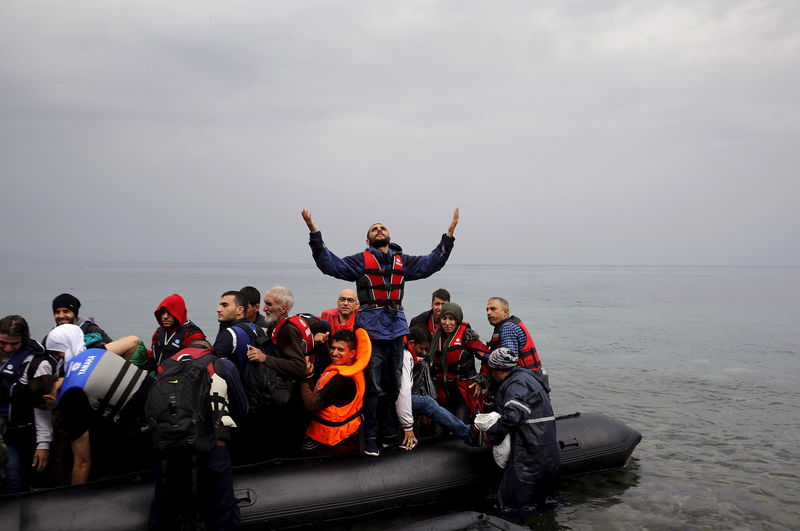By Karolina Tagaris
ATHENS (Reuters) - Greek Prime Minister Alexis Tsipras welcomed on Friday proposals to create a European Union coast guard agency to patrol its vast sea borders as pressure built at home for a solution to growing numbers of migrants stranded in the country.
The proposal was initially put forward by France and Germany out of frustration that Greece's inability to stem an influx of hundreds of thousands of refugees across the Aegean sea was threatening the EU's open-border Schengen zone.
Under a European Commission plan, the proposed coast guard could be deployed without a request from the state in question, unlike Frontex, the EU border agency already deployed in Greece, which needs an invitation.
Greece and Italy, also a major entry point for those fleeing Africa and the Middle East, had so far expressed reservations over tougher border controls, citing concerns over issues of national sovereignty. So Tsipras' comments signalled an important concession to Brussels and Berlin.
"The European coast guard is welcome," he told parliament. But he stressed that the ultimate authority to guard the borders lay with Greece, and reiterated the government's opposition to joint sea patrols with Turkey.
Tsipras's remarks came as pressure was building at home for the government to deal with the thousands of migrants and refugees stranded in Greece by a Balkan policy of only allowing entry to Syrians, Afghans and Iraqis.
A few thousand people mainly from Pakistan, Iran and northern African countries who were stuck in no-man's land between Greece and Macedonia were forcibly removed by Greek police this week and sheltered temporarily in Athens.
Scuffles broke on late on Thursday among groups of different nationalities who were staying in squalid conditions in tents at a taekwondo stadium and three people were injured lightly, a police source said.
The decision to shelter the migrants in the abandoned premises of the former Athens airport and at the Olympic sports venue drew the ire of Greek mayors of suburbs south of Athens where those buildings are housed.
In a letter to the country's migration minister, four mayors said what was intended as temporary accommodation for refugees fleeing war zones had turned into a permanent open space not for refugees but what they called "illegal immigrants."
"We categorically oppose this," they wrote.
"We will not allow the former airport to become a warehouse of souls because it does not fulfill any condition of hospitality whatsoever. We will not allow the former airport to be turned into living space economic migrants."
Greece's migration minister, Yannis Mouzalas, said on Thursday that the measure was temporary, and that those at the stadium would be removed by Dec. 17 because of a tournament due to held there.
Asked where they would go, Mouzalas said: "I don't know where the migrants will go, you will find out in due course."

But he defended plans to use such venues as shelter despite less-than-idea conditions, saying "the alternative was for them to sleep in fields."